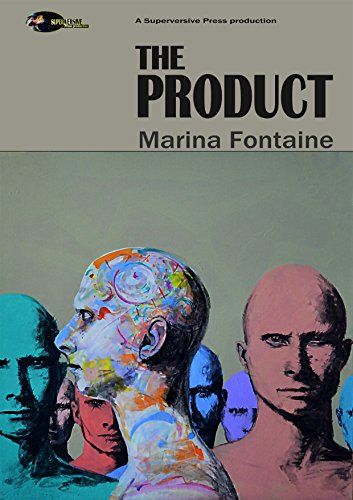 Superversive Press is here, and for their first offering they serve up a bit of short dystopian fiction for your edification.
Superversive Press is here, and for their first offering they serve up a bit of short dystopian fiction for your edification.
Who is the author lampooning: Soviet Russia or the Pacific Northwest…? And what is the titular “product”? Is it pulp fantasy or vintage role-playing games? (Oh come on, you know it could have been!) And is the main action supposed to recapitulate Christ’s journey to Golgotha or is something entirely different going on here?
As I’ve come to expect from the authors operating under this auspices of this particular literary movement, there’s always a bit more to the story than what you might first expect. And there’s plenty to think about with each turn in the storytelling.
The interesting thing about this is what it says about how superversive fiction functions in contrast to classic pulp:
- Science fiction from before 1980 is notoriously male oriented. This tale is told primarily from a female vantage point.
- There is a bit of romance here, but unlike Leigh Brackett’s works the emotional beats here are pitched more to a female audience.
- As is the norm since about 1970 or so, the female characters make no effort to maintain any degree of chasteness and they are somewhat crass and coarse in their discussion of the actual mechanics of love and love making.
Is this necessarily some sort of “pink” science fiction then…? You know, I wouldn’t really go that far. There is a hardness to the setting and the ideas here that is reminiscent of Ayn Rand. And really, this just isn’t “Pride and Prejudice: In Space!” (Seriously, you’ve got to roll back to Edgar Rice Burroughs for that.)
My one criticism of how the romantic elements are handled here are that, being outside of the target audience of it, they’re just not going to punch my buttons. For instance, I can grasp on an intellectual the heroine’s intense jealousy toward her lover’s ex-girlfriend and how she can get absolutely revved up over having to hide out with her boyfriend in her apartment. But that is one of those facts of life I really don’t mind escaping from for a while when I kick back with a good bit of science fiction.
Reading about it here, I can’t help but be reminded of how I’m better off not knowing how the magician pulls off a sleight of hand in a stage trick. To enjoy a show, there are just some things you’re better off not noticing.
I don’t know if your point about superversive fiction contrasting to pulp in that way is necessarily correct. Superversive fiction encompasses more than just pulp, but there’s no reason pulp books can’t be superversive.
You’ve praised John C. Wright for going back to the old pulp model for his stories, right? Well, I don’t think anybody on the team would ever make the argument that “Green Knight’s Squire” or “Iron Chamber of Memory” aren’t superversive, but they’re also very pulpy. It’s not mutually exclusive.
There’s no reason pulp can’t be superversive, and no reason a book like this can’t be either. It’s about that sense of wonder, that commitment to the reality of good and evil and the conviction that it’s better to do good than evil, that even if the good guys don’t always win the good guys are not fools for trying, that those silly old notions of love, heroism, morality are maybe not so silly after all.
There’s no reason those things can’t be in pulp – and no reason they have to be either. Superversive is broader than that.
Regarding the lack of chasteness: in a society with no religion, and also no marriage, there is little reason for chastity to exist. We see this to a fair extent among the secular folks that bar hop and hook up and star on reality tv.
As far as the lampooning, Marina left Soviet Russia. So you have a Russian woman, writing what feels very much like Russian sf with some romance. It reminded me of Yvegeny Zamyatin’s We in a couple of spots.
-
Agreed! I was thinking of “We” as well as. Also thought it had a little bit of Rand’s “Anthem.” I thought it was a good novella and will check out Marina’s work that was nominated for the DragonCon award.